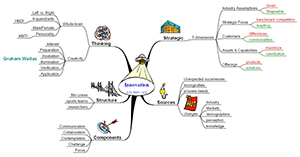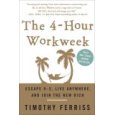It’s been a while since I updated my outsourcing efforts. I’ve been head-down in trying to get my major task — bookkeeping and accounting — under control. I have been trying to find the right solution for this for over five (5) years.
I am, apparently, unique in my requirements. I just fired my second accountant for failure to help me do what I need. But I can’t imagine that I am alone in what I want. I have a small service business. I am a consultant. I travel extensively. I am a sole operator. I have no employees. I need, and have needed, someone to help me setup a bookkeeping and record keeping system that I can understand, that meets all the requirements of the government for taxes, and for which I can outsource the day-to-day tasks of data entry, filing, etc.
Because I focus on my clients I do a very poor job of keeping my own paperwork in order. Oh, I invoice everything right on schedule. After all, I don’t get paid unless I do. And my client and project records are first-rate – that’s what I get paid to do. But taking time to do my own data entry, organization, filing, etc on anything like a regular basis just never seems to be a priority until there is a crisis. So I repeatedly end up at the end of the year with boxes and piles and stacks of stuff all over the place. And I know, I know, I am not alone in this.
So why is there apparently no one who offers this kind of service? How in the world do all the freelancers and free agents survive? Do they just do like me and spend two months a year under incredible stress trying to get it all together and spend the other 10 months dreading the process? Maybe. But I am done with that.
Previously, my VA helped me locate a very nice young lady with a nearby Staffing Solutions business. Christi has turned out to be a very good find. She took on the first part of my organization project and did a good job. We are now moving to the second phase – getting an accounting system established. For that I have gone through a rather strenuous research and screening process to locate an accountant who specializes in doing what I need.
For this I found the people at Intuit to be invaluable. I started with an online chat with a sales rep there, who gave my name to one of their sales advisors. Kelly turned out to be great. She helped me understand my options, the limitations of each, and what I needed to be looking for. She also made herself available to answer any additional questions and volunteered to help my (former) accountant setup my new system using QuickBooks Online Edition.
When that didn’t work out she helped me locate several more that were certified QuickBooks Advisors. That’s when I began my interview and screening process. I found two that were very helpful and knowledgeable. Both took the time to explain what they do, how they do it, and talk to me about my particular needs and the limitations therein. This past week I selected a provider to get started. He is former consultant who worked much as I do now, so he understands (I hope) my requirements better than my previous providers.
This next Friday we will meet – me, Christi, and the accountant – to go over the setup and processes for getting all the data in and keeping everything up to date. Of course, I still have to get all the back data entered, and that will be a challenge. But Christi is going to tackle that as soon as we’re ready. This feels like progress.
I am also on my second Virtual Assistant. As mentioned previously, I’m using GetFriday – an India-based service that provides virtual assistant services. My first VA simply did not have the skills – either technically or language – to meet my needs. GetFriday was good about getting me a replacement as soon as I asked. I spoke with Venkat on the phone prior to his assignment to make sure I was comfortable with his English and we are working through some early tasks to see how it goes.
Working with a VA is as much a learning experience for me as it is for them. It is a challenge for someone like me who has done everything alone for so many years. Finding the right tasks, communicating them clearly, doling them out in the right amount, etc, are all things I’m having to learn.
It’s also different in that my project work is conducted with a team of highly-skilled specialists and we all work to a common methodology. That means we all know what the other is doing, how it’s done, etc. That’s just not the case when you start using a VA. The type of tasks, and the level to which they can be done, are different. I want my VA to do all those sorts of routine, mundane, non-client tasks that must be done, but which I have neither the time nor inclination to do.
This might be keeping up with my personal calendar, sending reminders to me about friend/family things, or doing preliminary research on new car models for my daughter. It could be all kinds of stuff. I’m still learning.
 This image is a simple mindmap I created several years ago for an innovation project I led.
This image is a simple mindmap I created several years ago for an innovation project I led. Got a new book over the holidays – “
Got a new book over the holidays – “